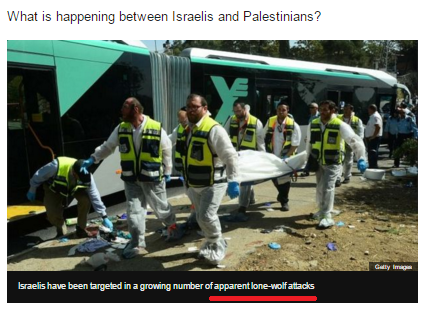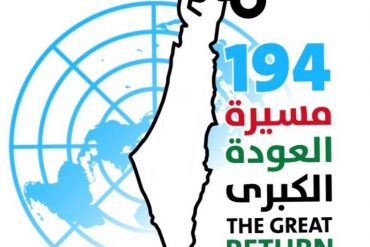The March 6th edition of the BBC radio 4 programme ‘The World Tonight’ included a report (from 16:48 here) which suggests that following the discovery of seven Coronavirus cases in Bethlehem on March 5th and the subsequent introduction of measures by the Palestinian Authority which included the closure of the Church of the Nativity, the BBC decided to send a reporter to that town.
Presenter Shaun Ley introduced the item. [emphasis in italics in the original]
Ley: “Now, as governments try to contain the spread of Coronavirus, some of the strictest quarantine measures anywhere in the world are in place in Israel, where 21 cases gave been reported. So far, it’s closed its borders to more than ten countries, and ordered travellers recently arrived from places like France Germany and Spain to self-isolate for fourteen days. Yesterday the first cases were confirmed in the West Bank in the town of Bethlehem. Within hours the main checkpoint from there into Israel had been shut down. The prime minister Binyamin Netanyahu said he’s unafraid to take harsh measures to try to contain the virus. But how stringently are they being followed and is there a wider economic impact to consider? Our Middle East correspondent Anna Foster begins her report in Bethlehem.”
Anna Foster commenced with the debatable claim that the Church of the Nativity is “the world’s oldest church” and by promoting the notion that Bethlehem – which has been under exclusive PA control for nearly a quarter of a century – is “occupied”.
Foster: “The sight of the ancient wooden door being firmly locked made headlines. The world’s oldest church where Christians believe Jesus was born, forced to close its doors as Coronavirus reached the occupied territories. I watched as the final visitors scrambled to touch the metal star that marks the spot. Hand after hand rubbing it without any soap and water in sight.”
Foster spoke to some German tourists who did not seem to be paying particular attention to instructions concerning self-isolation before going on:
Foster: “In Israel tens of thousands of locals and tourists are now in self-quarantine. But if you’re on holiday and not following the Hebrew media, how do you find out if you’re affected and what you should be doing?”
Listeners were not told that there are numerous non-Hebrew media outlets in Israel reporting daily on that topic or that both the Ministry of Health and the ambulance service provide information and help lines in English and other languages. Instead, Foster asked a worker at a hotel in Jerusalem:
Foster: “Should you be trying to tell them more though, because the government would want you to pass that information on for them, wouldn’t they?”
Moving on to the Old City in Jerusalem, Foster noted the reduction in the number of tourists.
Foster: “Israel is proud of its proactive approach to containing Coronavirus but shop owners like Mohammed can already see the impact of keeping tourists away.”
When her interviewee complained that business was already in decline because of “the situations between the Israel and the Palestinians” Foster did not explain to listeners the effects of Palestinian terrorism and violence on the tourism industry.
As we see, listeners to this superficial report did not in fact find out why the Israeli government has implemented “some of the strictest quarantine measures anywhere in the world” or what steps are being taken to help sectors impacted by the situation.
Neither did they hear anything of the co-operation between Israel and the Palestinian Authority which has included the evacuation of tourists from PA controlled areas and the supply of testing kits and training.
“COGAT has been working in the past two weeks to assist the Palestinian Authority in curbing and preventing a coronavirus outbreak in Judea and Samaria and in the Gaza Strip. Under the stewardship of Civil Administration Health Coordinator Dalia Basa, 250 coronavirus test kits have been transferred from Israel to the PA. Furthermore, joint training sessions for Israeli and Palestinian medical personnel were organized for the professional study of the virus, the protection of medical personnel, and the testing of patients suspected of being virus carriers.
In addition, COGAT has made available to the Palestinian public through its digital platform – the unit’s website and Arabic language social media pages (Al-Munassiq) – the Israeli health ministry guidelines on prevention and protection from the virus spread and ways to deal with contagion and outbreak. The information published in Arabic is available to the entire Palestinian public in Judea and Samaria and in the Gaza Strip.”
That information would of course have been far more useful to BBC audiences trying to understand how Israel is handling the situation than interviews with a couple of random tourist industry workers in Jerusalem.




